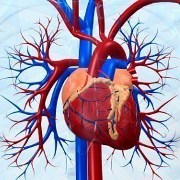 Photo: Getty Images
Photo: Getty Images
Imagine a world where damaged and diseased hearts no longer exist. Imagine a world where your heart could simply heal itself and the world where heart surgeries, medications, and disability from heart disease are nothing more than an entry in a medical history book about how things used to be.
Imagine!
While a world where hearts heal themselves and heart disease and damage is a thing of the past may sound like something from a good science fiction movie, the reality may not be quite so far-reaching into the future.
Spurred in part by animals known to grow new body parts, researchers have been exploring the possibility that humans could grow new body parts as well, and replace diseased and damaged tissue with healthy, natural tissue supplied by our own internal systems.
In nature, animals such as the salamander are able to regenerate cells by a process called dedifferentiation. Simply put, dedifferentiation is the process where healthy heart cells regress, or revert back, to an embryonic state. As a result, new cells that contain stem cell markers are produced.
These new cells result in the growth of new heart muscle cells. Damaged or diseased heart tissue is regenerated and heart function restored to the same state as before the damage occurred.
Researchers at the Max Planck Institute for Heart and Lung Research in Bad Nauheim and the Schüchtermann Klinik in Bad Rothenfelde Germany have identified a protein which they believe may aid the heart in healing itself by promoting the dedifferentiation process, enabling the heart to heal itself.
As a part of the study, researchers observed the presence of oncostatin M in higher concentrations than normal in tissue samples of cardiac patients. Oncostatin M regulates the dedifferentiation process in some human cells. As a result of this observation, researchers applied oncostatin M to cultivated heart cells.
Within six days, researchers were able to determine that the cells were dedifferentiated and that stem cell markers were present. Subsequent animal tests were conducted and researchers confirmed that oncostatin M acted to stimulate repair of damaged heart muscles.
The Max Planck researchers are not the only ones looking for a way to regenerate damaged heart tissue. In 2008, at Max Delbrück Center for Molecular Medicine (MDC) Berlin-Buch and the Charité – Universitätsmedizin Berlin (Germany) demonstrated that heart stem cells regenerate, growing new healthy tissue.
In this study, the results were achieved after suppressing beta-catenin in heart cells. In the same year, Dutch researchers grew new heart muscle cells from adult heart stem cells.
This is an exciting area of research which we’re certain to hear more about in the future. If successful, the possibilities for application of this technology are endless.
Sources:
Max-Planck-Gesellschaft (2011, November 11). Diseased hearts to heal themselves in future. ScienceDaily. Retrieved November 16, 2011, from http://www.sciencedaily.com/releases/2011/11/111111095220.htm
Helmholtz Association of German Research Centres (2008, December 11). Heart Regenerates After Infarction: First Trials With Mice. ScienceDaily. Retrieved November 16, 2011, from http://www.sciencedaily.com/releases/2008/12/081211112016.htm
University Medical Center Utrecht (2008, April 23). Heart Derived Stem Cells Develop Into Heart Muscle. ScienceDaily. Retrieved November 16, 2011, from http://www.sciencedaily.com/releases/2008/04/080423101822.htm
Reviewed November 17, 2011
by Michele Blacksberg RN
Edited by Jody Smith





Add a CommentComments
There are no comments yet. Be the first one and get the conversation started!